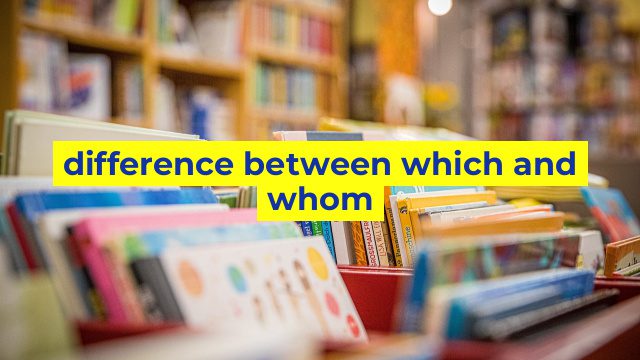The Difference Between Which and Whom
Introduction:
The English language can be quite challenging to learn, especially when it comes to grammar. Two words that can cause confusion are “which” and “whom.” They are both pronouns, but they are used in different ways. Understanding the difference between “which” and “whom” is essential to improving your English language skills.
What is “which”?
“Which” is a pronoun used to ask questions or indicate different options or possibilities. It is also used to introduce a relative clause that modifies or describes a noun. For example, “Which of these books do you want to read?” or “The film, which was directed by Steven Spielberg, won several awards.”
What is “whom”?
“Whom” is a pronoun used to refer to the object of a verb or preposition. It is used when referring to people, especially in formal writing or speech. For example, “Whom did you invite to the party?” or “To whom should I address this letter?”
How to Use Them Correctly:
To distinguish which of the two pronouns to use, you need to determine whether the word refers to the subject or object of the sentence. If the word refers to the subject, then use “which.” If it refers to the object, then use “whom.”
For example: “She is the one whom I lent my book to.” The word “whom” is referring to the person receiving the action, making it the object.
On the other hand: “Which dress should I wear to the party?” The word “which” refers to the subject’s choice, making it the subject.
In Conclusion:
Understanding the difference between “which” and “whom” is essential for writing and speaking in English. Knowing which one to use and when to use them can make a significant difference in the clarity and meaning of your sentences. With practice, you’ll be able to use “which” and “whom” confidently and correctly.
Table difference between which and whom
| Word | Function | Example |
|---|---|---|
| Which | Used for things and animals | Which book do you recommend? |
| Whom | Used for people (object) | To whom did you give the book? |
